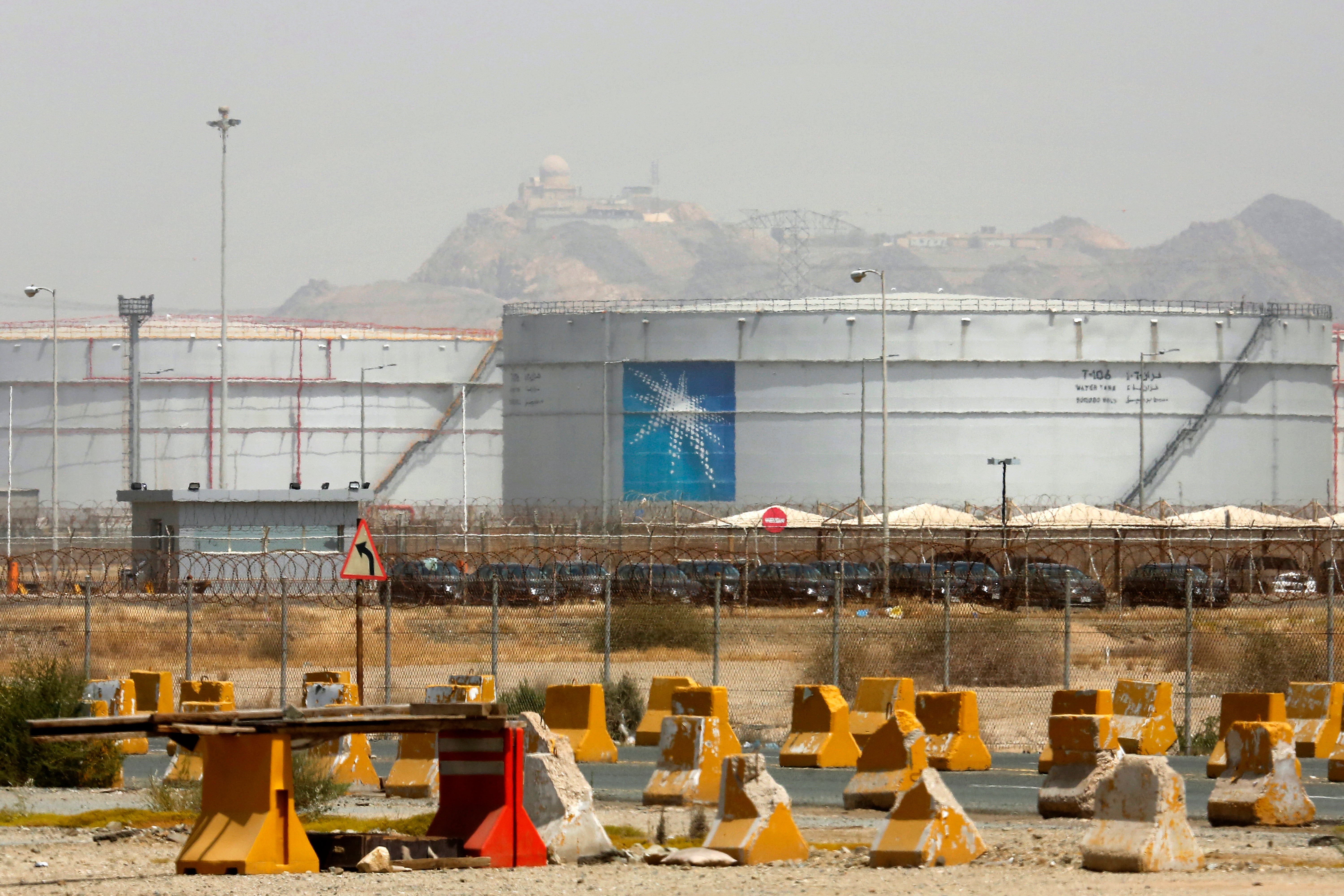Saudi Arabia extends cut of 1 million barrels of oil a day through September, trying to boost prices
Saudi Arabia says it will extend its unilateral production cut of 1 million barrels of oil a day through the end of September in its effort to boost flagging energy prices

Your support helps us to tell the story
From reproductive rights to climate change to Big Tech, The Independent is on the ground when the story is developing. Whether it's investigating the financials of Elon Musk's pro-Trump PAC or producing our latest documentary, 'The A Word', which shines a light on the American women fighting for reproductive rights, we know how important it is to parse out the facts from the messaging.
At such a critical moment in US history, we need reporters on the ground. Your donation allows us to keep sending journalists to speak to both sides of the story.
The Independent is trusted by Americans across the entire political spectrum. And unlike many other quality news outlets, we choose not to lock Americans out of our reporting and analysis with paywalls. We believe quality journalism should be available to everyone, paid for by those who can afford it.
Your support makes all the difference.Saudi Arabia said Thursday it will extend its unilateral production cut of 1 million barrels of oil a day through the end of September in its effort to boost flagging energy prices.
The Saudi reduction, which began in July, comes as the other OPEC+ producers have agreed to extend earlier production cuts through next year.
The kingdom announced the extension in a statement on the state-run Saudi Press Agency, quoting an anonymous official in the kingdom's Energy Ministry. The official added that the cut “can be extended or deepened” if the need arises.
“This additional voluntary cut comes to reinforce the precautionary efforts made by OPEC+ countries with the aim of supporting the stability and balance of oil markets,” the official said.
The move was widely expected by analysts.
Benchmark Brent crude traded Thursday at over $80 a barrel.
A series of production cuts over the past year has failed to substantially boost prices amid weakened demand from China and tighter monetary policy aimed at combatting inflation. Brent has largely hovered between $75 and $85 a barrel since last October.
The Saudis are particularly keen to boost oil prices in order to fund Vision 2030, an ambitious plan to overhaul the kingdom's economy, reduce its dependence on oil and create jobs for a young population. The plans include several massive infrastructure projects, including the construction of a futuristic $500 billion city called Neom.
Higher prices would also help Russian President Vladimir Putin fund his war on Ukraine, as Western countries have used a price cap to try to cut into Moscow's revenues.
Western sanctions mean Moscow is forced to sell its oil at a discount to countries like China and India. Its estimated export revenue fell by $1.4 billion to $13.3 billion in May, down 36% from a year ago, the International Energy Agency said in a report in June.